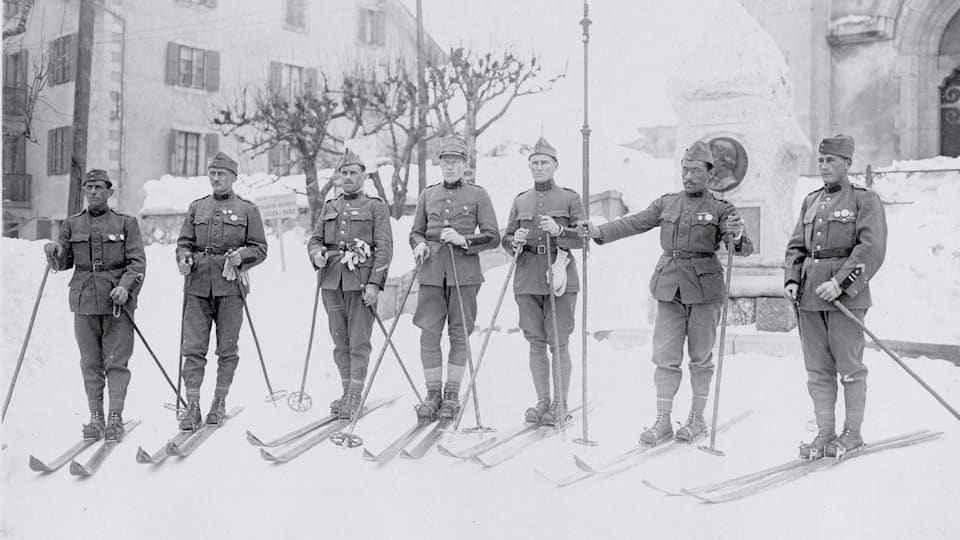Switzerland land military patrol gold
The “military patrol” competition which took place in Chamonix on 30 January 1924 can be regarded as a forerunner of the modern biathlon. The cross-country skiing and rifle shooting elements were similar, but the difference was that it also contained a “patrol” component, where four-man teams, which had to include one officer, embarked on a 30km ski race as a unit. At the conclusion of the race the teams – minus the officer – took part in a shooting contest in which 30-second time bonuses could be gained for every target hit.

According to the official report of the 1924 Winter Games, “The course must be completed by the entire patrol, which must dress in military uniform and be equipped with arms and backpacks”. Six patrols (Finland, France, Italy, Poland, Czechoslovakia and Switzerland) were sent off at three-minute intervals from the Olympic Stadium, where the race would also finish.
The Finnish patrol, which departed first, also finished the 30km in first place. However, the Swiss team, led by Lieutenant Denis Vaucher, and featuring Alfred Aufdenblatten, Alfons Julen and his brother, Anton, which was last to leave the stadium (15 minutes after their Finnish counterparts), arrived back at the stadium in second position, just under 10 minutes after the Finns. The Swiss skiers’ time of 4:00:06 gave them an advantage of more than six minutes over their Scandinavian rivals, 19 minutes over France and 22 minutes over Czechoslovakia. Italy and Poland withdrew because of difficult weather conditions.
Despite hitting the target eight times to Finland’s 11, there was no significant change to the overall standings, and Vaucher and his team-mates were crowned Olympic champions with an adjusted time of 3:56:06, relegating Finland (4:00:19) and France (4:20:18), whose riflemen scored just two points in the shooting segment, to the silver and bronze medal positions.
Intriguingly, the Swiss quartet would be the first and last Olympic military patrol champions. The discipline appeared on the programme at St. Moritz 1928, Garmisch-Partenkirchen 1936 and St. Moritz 1948, but only as a demonstration sport, and without officially recognised results. It was not until the 1960 Winter Games in Squaw Valley (USA), that the event was given a new lease of life in the guise of the biathlon, which made its Olympic debut as a 20km-long individual event.
